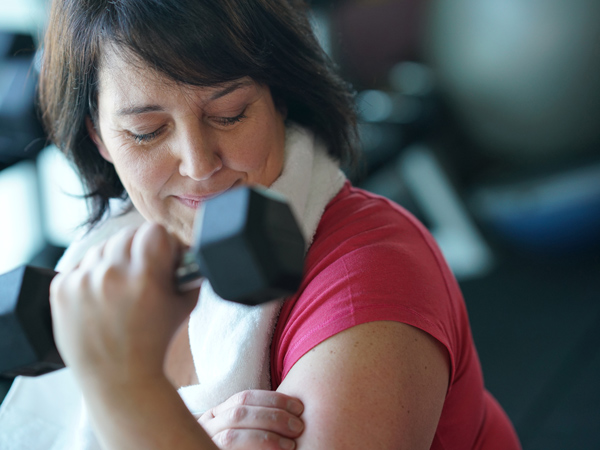The Power of Resistance Training During Perimenopause and Menopause
As women transition through perimenopause and into menopause, they experience various hormonal changes that can impact their bodies and overall health. Among these changes are a decrease in estrogen levels and a potential decline in muscle mass, bone density, and metabolic rate. However, integrating resistance training into your fitness routine can be a transformative strategy to counteract these effects, optimizing health and well-being during this critical life stage.
Understanding the Importance of Resistance Training
- Preserving Muscle Mass
Hormonal fluctuations during perimenopause and menopause can lead to muscle loss, a condition known as sarcopenia. Renowned exercise physiologist Stacey Sims emphasizes that women experience muscle loss at a rate of approximately 3-8% per decade after the age of 30 (Sims, 2020). Resistance training has been shown to be one of the most effective methods for preserving and even building muscle mass during this time.
Gabrielle Lyon, a functional medicine physician and expert in muscle-centric health, highlights the importance of maintaining muscle not just for physical appearance but also for overall health. Muscle plays a crucial role in metabolic function, aiding in the regulation of blood sugar and reducing the risk of chronic diseases (Lyon, 2021). By engaging in regular resistance training, women can protect their muscle mass and combat the age-related decline that often accompanies menopause.
- Enhancing Bone Health
Estrogen is vital for bone density, and its decline during menopause increases the risk of osteoporosis. Resistance training can help stimulate bone formation and decrease bone loss. Studies have shown that weight-bearing exercises, particularly those that involve resistance training, can significantly improve bone mineral density (Dawyot et al., 2021). Both Stacey Sims and Gabrielle Lyon advocate for strength training not only to build muscle but also to maintain strong, healthy bones.
- Supporting Weight Management
Weight gain is a common concern during menopause due to hormonal shifts and a slowing metabolism. Resistance training can assist in managing weight by preserving lean muscle mass, which is crucial for maintaining a healthy metabolic rate. Lyon emphasizes that when women build muscle through resistance training, their bodies become more efficient at burning calories, even at rest (Lyon, 2021).
- Improving Mood and Quality of Life
The hormonal changes during perimenopause and menopause can lead to mood swings, anxiety, and depression. Engaging in regular resistance training has been shown to have positive effects on mental health, helping to alleviate symptoms of anxiety and depression. Exercise releases endorphins, which can enhance mood and improve overall well-being.
Tips for Getting Started with Resistance Training
If you’re new to resistance training or returning after a long break, here are some guidelines to get started:
- Start Slow: If you’re just beginning, start with bodyweight exercises or light weights. Gradually increase intensity as you become more comfortable.
- Focus on Form: Proper technique is crucial to prevent injury. Consider working with a certified trainer to learn the basics of resistance training.
- Incorporate Compound Movements: Exercises like squats, deadlifts, bench presses, and rows engage multiple muscle groups, providing a more effective workout.
- Aim for Consistency: Aim for at least two to three sessions per week, allowing your body to recover between workouts.
- Listen to Your Body: Pay attention to how your body responds to resistance training and adjust your routine as needed.
Embrace resistance training not just as a means to combat the effects of aging, but as an empowering practice that promotes health, strength, and confidence during this transformative life stage. By investing time in physical fitness, you can take control of your health and thrive through perimenopause and beyond.
Dr. Alana Shaw ND, R.Ac
Menopause Society Certified Practitioner (MSCP)
References
- Dawyot, J., et al. (2021). “The effects of resistance training on bone health in menopausal women: A comprehensive review.” Osteoporosis International, 32(5), 849-861.
- Lyon, G. (2021). Building a Revolutionary New Body: A Guide to Muscle-Centric Health. Available at Gabrielle Lyon’s Official Site.
- Sims, S. (2020). Roar: How to Match Your Food and Fitness to Your Cycle–and Achieve Your Dream Life. Available at [Stacey Sims’ Official Site](https://www.drstacey sims.com).

